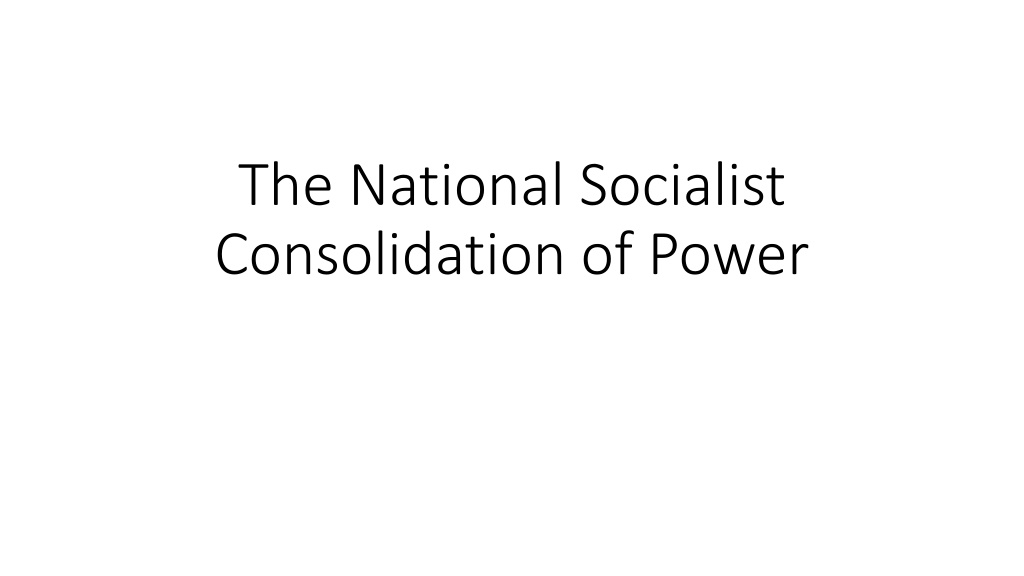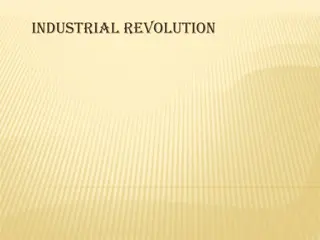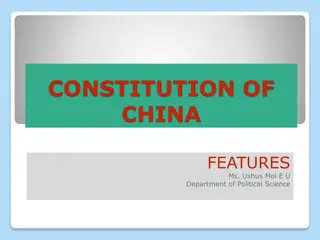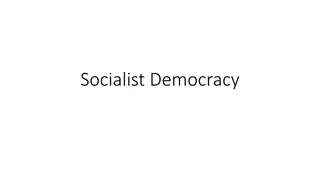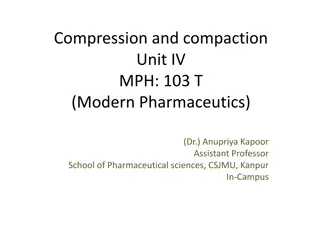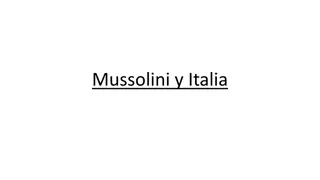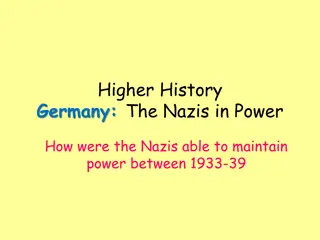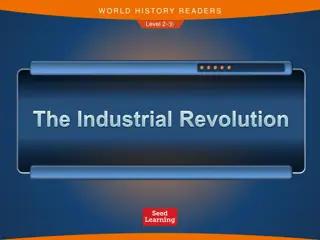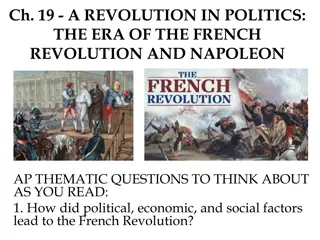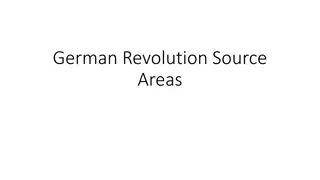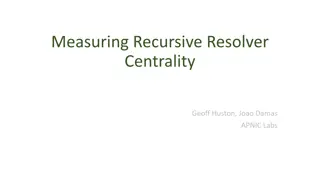The National Socialist Consolidation of Power - Legal Revolution in the Reichstag
Hitler's consolidation of power in Germany involved strategic maneuvers such as exploiting the Reichstag fire to pass emergency decrees, suspending civil liberties, and ultimately passing the Enabling Act, granting him dictatorial powers. These actions allowed Hitler to establish a totalitarian regime and effectively dismantle the democratic institutions in Germany.
Download Presentation

Please find below an Image/Link to download the presentation.
The content on the website is provided AS IS for your information and personal use only. It may not be sold, licensed, or shared on other websites without obtaining consent from the author. Download presentation by click this link. If you encounter any issues during the download, it is possible that the publisher has removed the file from their server.
E N D
Presentation Transcript
The National Socialist Consolidation of Power
1.Legal Revolution Consolidation of power in the Reichstag. When Hitler came to power, his authority was limited by parliament and President Hindenburg. The SA were also getting very powerful. Hitler was determined to eliminate these obstacles. Hitler asked Hindenburg to call new elections so that the Nazis could win a majority. These were called for the 5thof March. Reichstag Fire 27thFeb 1933 German parliament set on fire. A Dutch communist Marinus Van der Lubbe was caught and blamed. Hitler used this as an to attack communists and as a reason to vote Nazi.
1.Legal Revolution Consolidation of power in the Reichstag. J Noakes and G Pridham Whoever was responsible for the Reichstag fire the Nazis exploited the opportunity to the full. Their fear of a Communist uprising prompted them to take precipitate and drastic action which resulted not only in arrests but also in the most important single legislative act of the Third Reich: the Emergency Decree of 28 February. Ian Kershaw (1998): The Emergency decree that took away all personal liberties and established the platform for dictatorship was warmly welcomed.
Legal Revolution Consolidation of power in the Reichstag. 28thFeb 1933 Decree for the protection of the people and state. Passed by Article 48 [presidential decree]. This allowed Hitler to suspend civil liberties and take any appropriate action to stop dangers to public safety. In practise the law was used to arrest Communists and Socialists and prevent them from campaigning. Despite all these advantages the Nazis didn t win a majority in the March elections. They won 44% of the vote.
Legal Revolution Consolidation of power in the Reichstag. Enabling Act March 23rd1923 passed by Reichstag. This act gave The cabinet [in reality Hitler] the power to make laws for 4 years without a going through the Reichstag or using Article 48 [Presidential decree]. It needed two-thirds majority as it was an amendment to constitution. Hitler achieved this by surrounding the Kroll Opera House [temporary parliament] with SA and SS, arresting any KPD deputies and making a deal with the Centre party. Hitler can now make any laws he wants. He has dictatorial power.
Importance of Enabling Act The Enabling Act gave emergency powers to the government for four years, and although he had claimed it would only be used exceptionally, it in fact it became the basis on which the Nazis ruled Germany from this point on. Hitler had claimed that the Enabling Act would not affect the workings of the Presidency: in fact even before the death of Hindenburg (2 August 1934) Hitler had prepared a merger of the offices of President and Chancellor so he would become Fuhrer. On Hindenburg s death, he was able to do this because of the Enabling Act. The parliamentary system was made redundant by the Act. He also claimed that the separate existence of the federal states would not disappear but in fact from January 1934 the state governments were overthrown by SA violence allowing the Nazi central government to appoint commissioners. Elected state assemblies were then dissolved and Nazi Reich governors were appointed to run the states.
Importance of Enabling Act Enabling Act became the virtual constitution of the Third Reich. The Weimar Constitution was completely by-passed. Hitler did not mention that the Enabling Act would be used to destroy all other parties. Hitler did not mention that the Enabling Act in effect turned Article 48 on its head by making emergency powers permanent thereby establishing rule by decree. Hitler had said that the churches position and rights would not be threatened but in fact via the Concordat (July 1933), for example, he sought to control the Catholic Church and to neutralise any potential opposition from that quarter.
Enabling Act Historiography Richard J Evans: The so-called Enabling Act passed by the Reichstag gave the cabinet the right to rule by decree without reference either to the Reichstag or the President. Together with the Reichstag Fire Decree it provided the legal pretext for the creation of a dictatorship. Peter Fritzsche: all parties except for the SPD (and the banned Communists) voted to provide Hitler with emergency powers and suspended the constitution for four years The political establishment voted for dictatorship. Jeremy Noakes: The Enabling Act emasculated the Reichstag and freed the Reich ministries from parliamentary control. Roderick Stackelberg: The Centre Party provided the crucial margin for the two- thirds majority needed to change the constitution. On 23 March the Reichstag passed the Enabling Act (the Law for the Removal of the Distress of the German People and the Reich) by a vote of 444 to 94.
How important was the Enabling Act? Although the Enabling Act was a foundation stone of the Nazi dictatorship, by itself it was insufficient to allow the Nazis to consolidate their power. The Enabling Act built on the February Decrees (28 February 1933), issued in the immediate aftermath of the Reichstag fire (27 February 1933). These decrees suspended human rights and gave the secret police more powers to hold people in protective custody . Hindenburg allowed these decrees to be passed. As the Nazis behaviour on the day of the vote on the Enabling Act showed, violence and intimidation became widely used by the Nazis from this point on. The Enabling Act was pivotal and was crucial to the process of Gleichschaltung [coordination].
2. Terror and Repression Gestapo were the Prussian secret police that became the German secret police in 1933. The SS were authorised to act as an extra police force in 1933 they used the Reichstag Fire decree to take suspects into protective custody . Both are powerful police forces in Germany, they overlap. Historians refer to them as the SS-Gestapo complex. SA are the Nazi party bully boys used as a blunt instrument to smash opposition. Block leaders and Radio wardens important to help keep control.
Terror and Repression Jeremy Noakes The Nazi Party and the SS were crucial organisations in implementing Nazi rule. So, for instance, at regional level the Gauleiters, who were directly responsible to Hitler, played a key role in governing the country. The SS controlled the police and its own prison camp system and this gave it awesome power .
Terror and Repression Debate There is a debate over the part played by terror and repression in the consolidation in 1933-34. Robert Gellately: It was a characteristic feature of Nazi Germany that the regime found no difficulty in obtaining the collaboration of ordinary citizens. Most people seemed prepared to live with the idea of a surveillance society, to put aside the opportunity to develop the freedoms we usually associate with liberal democracies, in return for crime-free streets, a return to prosperity, and what they regarded as good government
Terror and Repression Debate Gellately argues seizure of power in tune with what people want terror used only on outsiders. Evans disagrees and sees terror as against big groups in society working class and left wing organisations. Terror played a big part in securing power. People frightened into going along with Nazis. Kopenick blood week June 1933 Nazis claim a communist revolution is about to happen and attack KPD and SPD 70 killed. Evans points to the existence of 200 makeshift concentration camps in Berlin cellars and warehouses KPD and SPD tortured and murdered.
3. Gleichschaltung 13 March 1933: Goebbels appointed Minister of Propaganda and Enlightenment. The Nazis now took complete control of the press, radio, cinema and all cultural output and were thereby able to prevent. For the most part, traditional power structures were nazified and went on to serve the Nazi state. Thus, for example, civil servants generally enacted Nazi laws and the courts and the legal system adapted to the new regime. However, the Nazis increasingly operated outside these structures altogether so that the Civil Service was simply by passed.
Gleichschaltung 7thApril 1933 Nazi officials put in charge of local governments across Germany. 1stMay 1933 Trade unions shut down. Mayday new holiday for workers. 14 July 1933: Law Against the Formation of New Parties. Germany became a one party state.
Gleichschaltung July 1933 a Concordat [agreement] signed between the Nazis and the Catholic church. It said the Catholic church was Guaranteed religious freedom and the right to conduct its own affairs without state interference. Allowed to keep its own property and continue its key role in education. In return Hitler was guaranteed that the church would not interfere in politics.
Gleichschaltung Protestant churches were all put together into the German Reich Church in April 1933 this was under the control of the Nazis. Bishop Muller [sympathetic to Nazis] put in charge. Breakaway Confessional church set up, led by Martin Niemoller. Include about 7,000 of 17,000 pastors [ministers]. They wanted the church to be independent of the state.
Gleichschaltung This is a process of coordination that is partly undertaken by the events above that allow the Nazis to alter or control/coordinate the key aspects of government army, civil service, constitution, Reichstag. There was also an element of self-interest and careerism where many in positions joined the Nazi party. Gleichschaltung was wider than this and included the deal with the Catholic church and the attempts to manipulate the Protestant churches as well as the youth movements, education, women, German Labour Front [DAF], Strength through Joy [KDF]. In public people conformed to the Nazi view. There is a whole debate about the degree of conformity there really was.
Night of the Long Knives Hitler and the SS attacked the leadership of the SA and other political enemies on the night of the 30thof June 1934. Hitler aimed to increase his own power, to control the left wing of the Nazi party and to win over the army. Hitler gets away with murder and this had a huge impact on his enemies, the population in general, the army and the Nazi party.
Night of the Long Knives Hitler took control of the Nazi party by wiping out any opposition. He acted completely above the law insisting that he was the law. It rid him of those who wanted a more revolutionary Nazism like Rohm and the Strassers. It also allowed him to get the army onside as they had been concerned at the power of Rohm and the SA. 2ndAug Hindenburg dies and Hitler is made Fuhrer. Army swore an oath of loyalty to Hitler.
Night of the Long Knives Roderick Stackelberg (2007): Despite the extra-legal nature of the purge of 30 June 1934 and its brutality, many Germans regarded it as evidence that the Nazis repudiated the extra-legal violence of the SA . Peter Fritzche (2008): The killings of June 30 1934 helped the regime by burnishing its law-and-order credentials and promoting Hitler s statesmanlike image . Dick Geary (2000): The 30 June purge stood Hitler in good stead with both the elites and the German public . It showed that the Nazi state would brook no opposition .
Night of the Long Knives Ian Kershaw (1991): The unrestrained brutality of the Night of the Long Knives provides a further pointer to the truth of Mao s dictum that political power grows out of the barrel of a gun . Noakes and Pridham (1998 edn): The Nazi takeover represented a compromise between the Nazi leadership who had acquired political power, and the traditional elites who retained their positions but put themselves at the service of the new regime . Stephen Lee (1998): It might be argued that the real revolutionaries were the SA and that Hitler took emergency measures against these in the Night of the Long Knives . On the other hand, Hitler stopped the second revolution not through a preference for legality , but to maintain and strengthen his own position.
Overall Nazis consolidated their power by a variety of methods such as The elimination of democracy The elimination of enemies The assertion of control over the army and churches The spread of Nazi organisations for youth, women, teachers etc Propaganda Success in the economy
